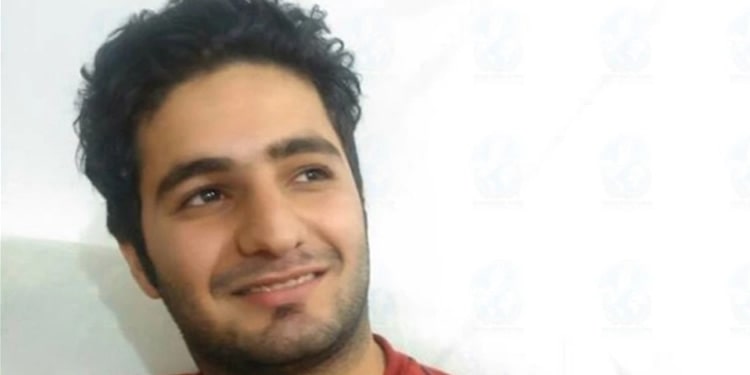Iran-HRM – Jailed Iranian protester Hossein Hashemi detailed the poor conditions of the Greater Tehran Penitentiary (GTP) in a letter published on May 21.

Hossein Hashemi, who has been imprisoned for taking part in the nationwide protests in November 2019, wrote that while adequate drinking water was scarce at the GTP or Fashafuyeh Prison, drugs could easily be acquired in the section where political prisoners were held along with thieves.
While criticizing the poor condition of the Greater Tehran Penitentiary, he said: “Young people who protested against gasoline prices of 3,000 tomans per liter must now buy their drinking water at 5,000 tomans per liter.”
He said protesters who took to the streets in November 2019 were “not the spies of enemy states or traitors”.
Referring to the psychological and mental problems of some of the detainees, Mr. Hashemi said, “The lives that were completely ruined after November 2019 are not few,” and many people have become infected with sedatives and eventually drugs.
In another part of the letter, Hossein Hashemi mentioned other protesters including Siamak Moghimi who had attempted suicide at least 20 times while in prison and Vahid Babaie, a father of two small children who was sentenced to six years in prison for “spreading propaganda against the state” and “assembly and collusion”.
“Vahid Babaie said they did not let him speak in court. On orders of the Security Police, he was forced to move to another area. When his brother and niece/nephew died during these past 18 months, he was not even allowed to say his last goodbye,” he wrote.
Other protesters mentioned in the letter include Amir Hossein Moradi, Saeed Tamjidi, and Mohammad Rajabi, who were initially were sentenced to death and their death sentences were overturned after widespread protests.
The new court of the three protesters is scheduled to be held on June 29. About the condition of Amir Hossein Moradi, Hossein Hashemi wrote that “every day he lives a life of death. His father committed suicide and he was not given leave to say goodbye to his father.” Amir Hossein Moradi suffered from butterfly skin disease in prison, and according to the letter, “no one is taking care of him. His ampoules which he buys at his own expense are not given to him on time and his illness constantly relapsees.”
Jailed Iranian protester Hossein Hashemi further said about the protesters arrested for taking part in November 2019 protests: “We were workers who were tired of this tyranny and injustice. We are tired of not going anywhere. We are tired of seeing our young people searching in the trash, or addicts on the streets or sleeping in graves. We are tired of seeing our women selling their bodies for food. We are tired of the brain drain. We have fought for humanity in Iran.”
The young political prisoner said crystal meth, opium and other drugs could easily be found in the political prisoner’s section in the Greater Tehran Prison.
“However, a glass of drinking water, a proper toilet, proper heating and cooling facilities, a quiet space for books and reading, a plant, a flower or even a tree branch cannot be found. There is nothing in front of you except cement, rough walls, and barbed wire. There is not even a book that will let your imagination soar away from this place.”
Iran Human Rights Monitor has received several reports from inside Iran indicating a systematic effort by the Iranian Judiciary to addict detained protesters and young people to narcotic drugs.
Political prisoner Hossein Hashemi said prisoners were forced to pay for their water, which they used for drinking, bathing, and brushing their teeth.
“The Greater Tehran Penitentiary’s water is unsuitable for drinking and smells very bad. It is full of silica and cannot be used for bathing and brushing your teeth. If you do use it, your teeth will gradually rot and you will develop sores on your skin,” he wrote.
He also said many of the detained protesters were taking sedatives to deal with their heavy prison terms and “lives lost”. In his lengthy letter from prison, Hossein Hashemi said prisoners were being held “in the worst possible living conditions”.
“They have taken minimum facilities from us and (our cells) are not even fit for animals,” he added.
He also cited the regime’s unjust court systems, saying that many trials were held without lawyers or lawyers that were “silent”. The young political prisoner said his trial only lasted one minute with a lawyer that did not defend him.
 Shabtabnews In this dark night, I have lost my way – Arise from a corner, oh you the star of guidance.
Shabtabnews In this dark night, I have lost my way – Arise from a corner, oh you the star of guidance.


